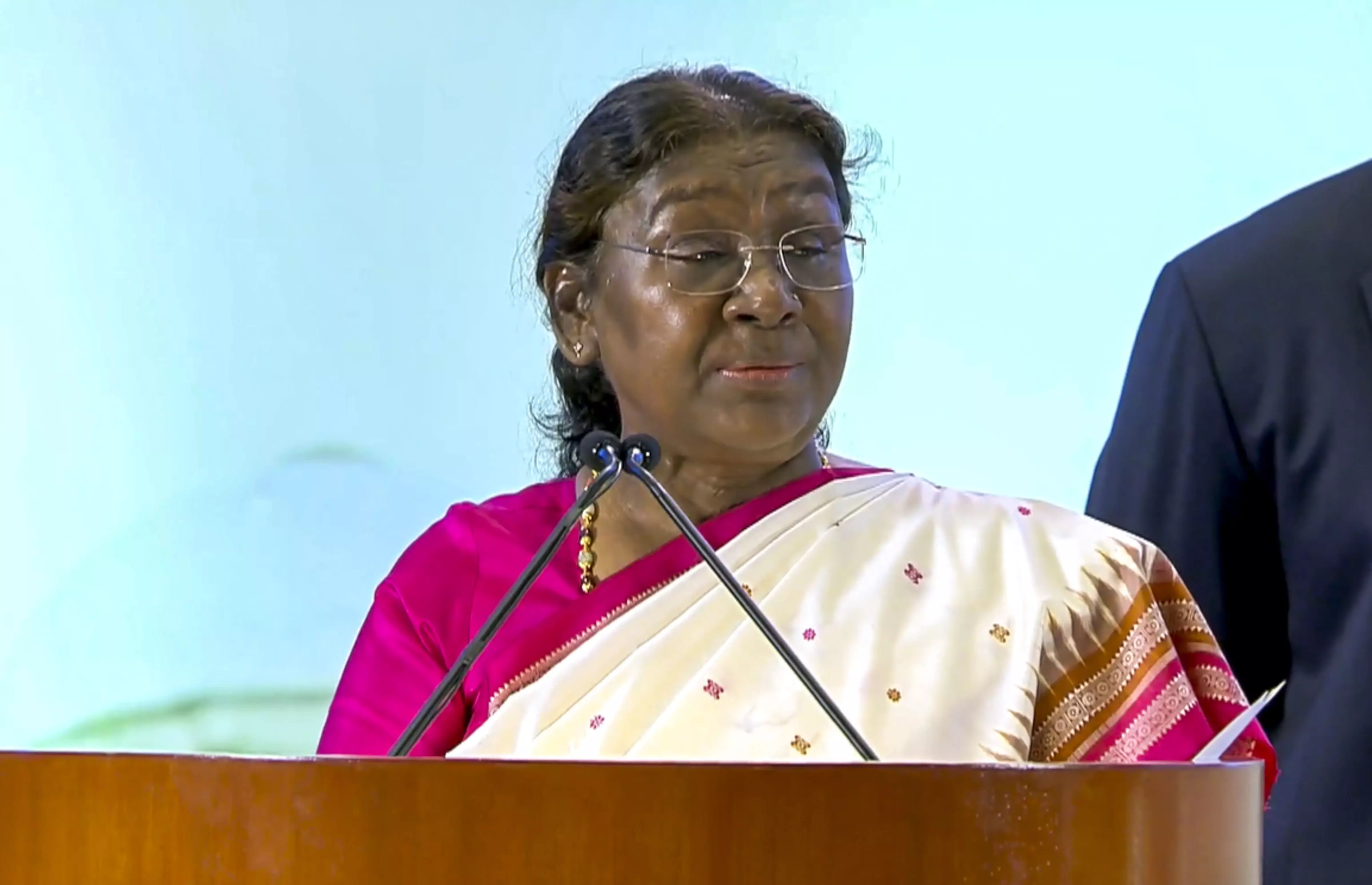DC Edit | Delays in justice delivery must stop, as poor suffer

The person who coined the dictum ‘justice delayed is justice denied’ was quintessentially defining one of the basic characteristics of the process of administration of justice. And when President Droupadi Murmu spoke of the need to change the “culture of adjournments” in courts to ensure swift justice, at the two-day National Conference of the District Judiciary organised by the Supreme Court in New Delhi, she was reminding the Indian judiciary that it had moved away from its original mandate and had become part of the process that ended up in denying justice, especially to the poor.
The President minced no words while speaking at an event where senior judicial administrators including the Chief Justice of India were present. Common people’s stress level increases in courtroom settings and this needs to be studied, she said. The President was voicing the concern of the poor in Indian villages for ages when she said that they are afraid of going to court and when they do so, they do it only under great compulsions.
It was a virtual indictment of the judicial system when the President said the poor tolerated injustice silently because they felt that fighting for justice could make their lives more miserable. The culture of adjournments would inflict on them unimaginable pain, President Murmu cautioned. Every possible measure should be taken to change this situation, and every judge in the country had the responsibility to bring about that change, she said.
The President was not at all dismissive of the Indian judiciary and its workings; she was all praise for whatever it delivers. The Supreme Court of India has made an invaluable contribution as a vigilant sentinel of the judicial system of the world’s largest democracy and that the Indian jurisprudence has a respectable place because of the Supreme Court, she pointed out. She was only calling out practices that have come in the way of delivering justice.
Judges of the top court themselves have complained several times that justice had become very costly and unaffordable for poor people. Adjournments are one sure way of making it prohibitively costly. Lawyers come up with lame excuses for adjournments to which the lawyer on the opposite side would have little objection; he will have the courtesy returned the next time. It is a win-win situation for lawyers on both sides, and only the litigant is the loser.
It is at this point that the President wanted the judges to intervene and see the plight of the litigant, especially the poor from rural India. The President, by specifically explaining their apprehension, was forcefully communicating the fact that it would be a colossal failure of the massive establishment that runs the judiciary if the really needy people were afraid of approaching it. What purpose those grand structures and the learned people who adorn them serve if the seekers of justice, instead of come running to them, would want to avoid them?
The President’s call for putting an end to the culture of adjournments brooks no excuses. It is imperative that the executive and the judiciary listen carefully when the poor in the country speaks though their President. And make amends.
